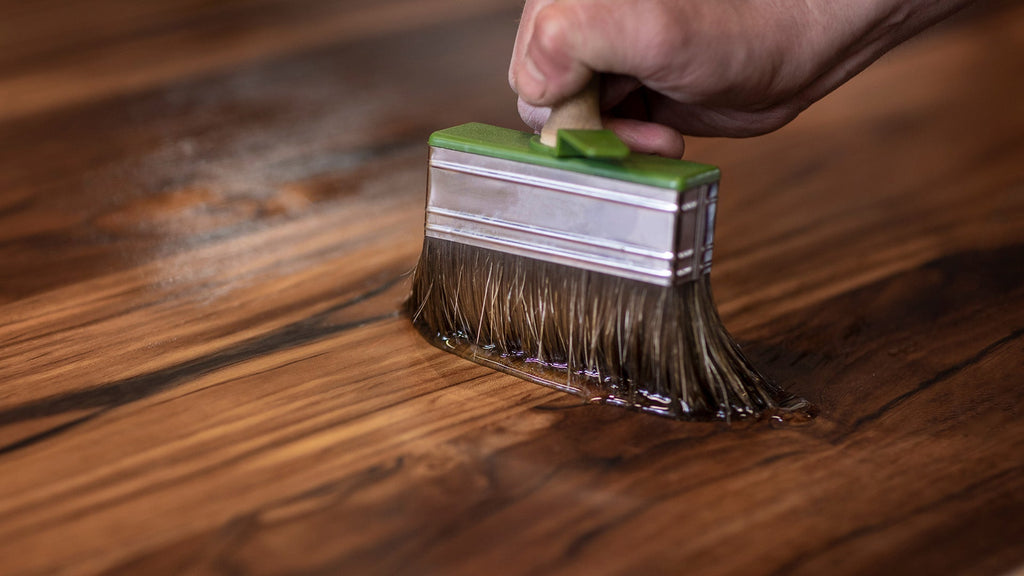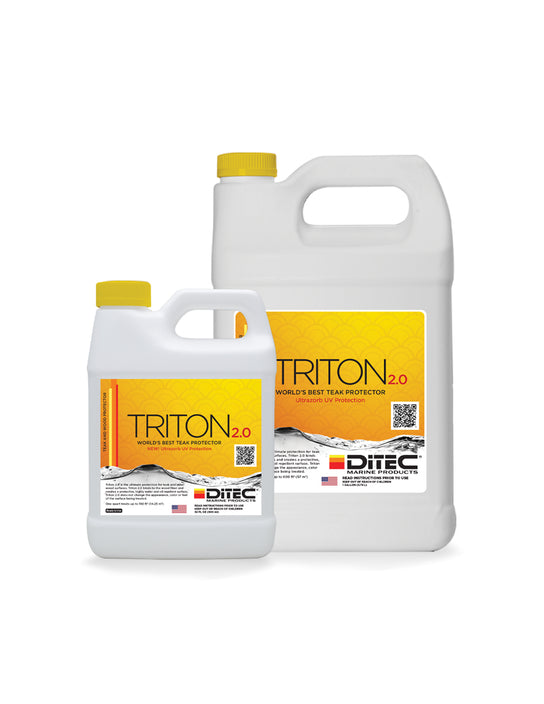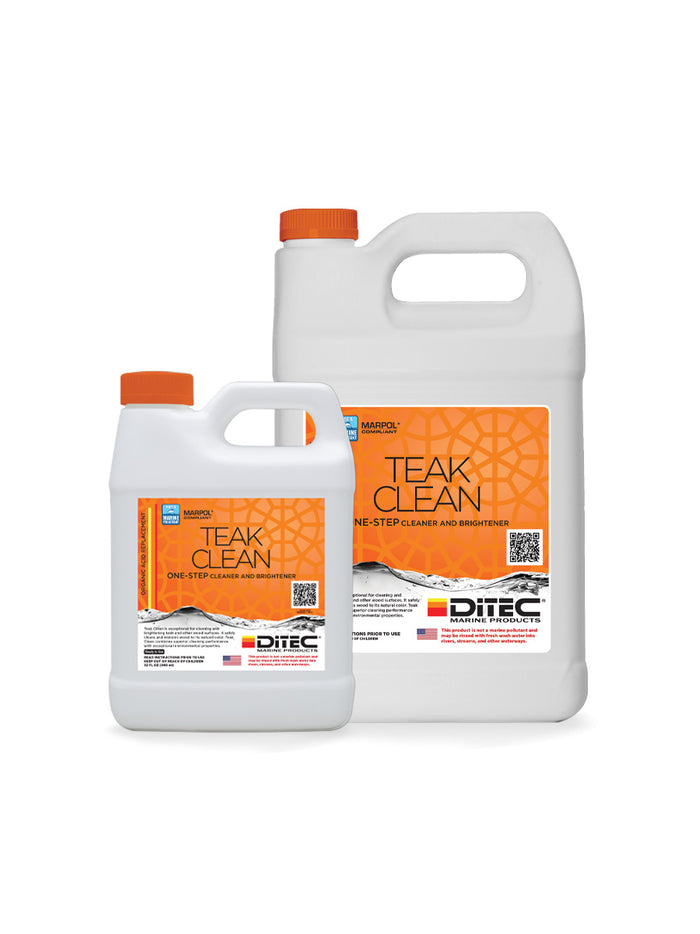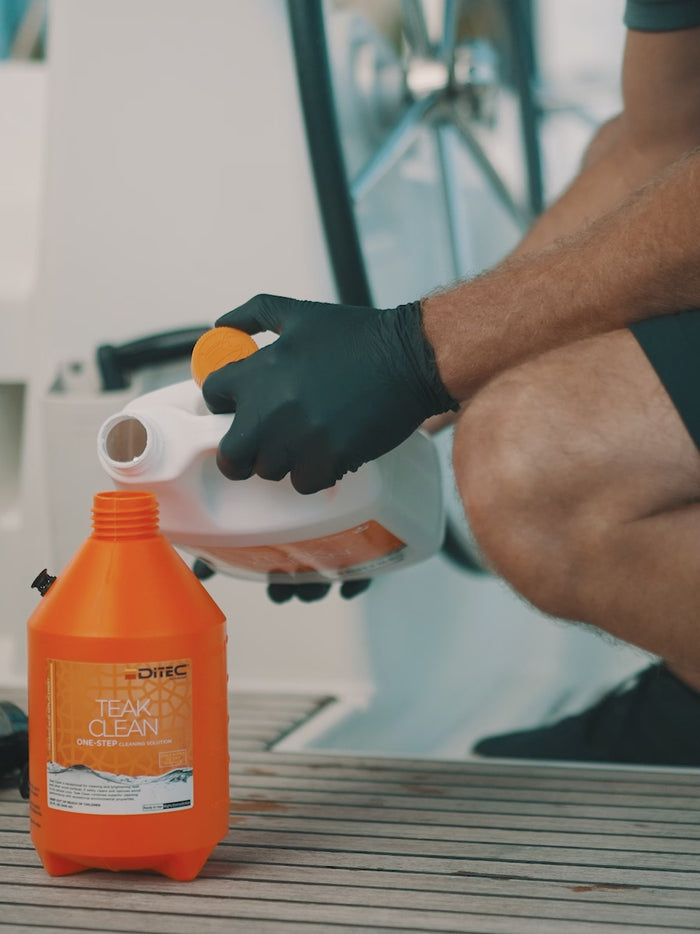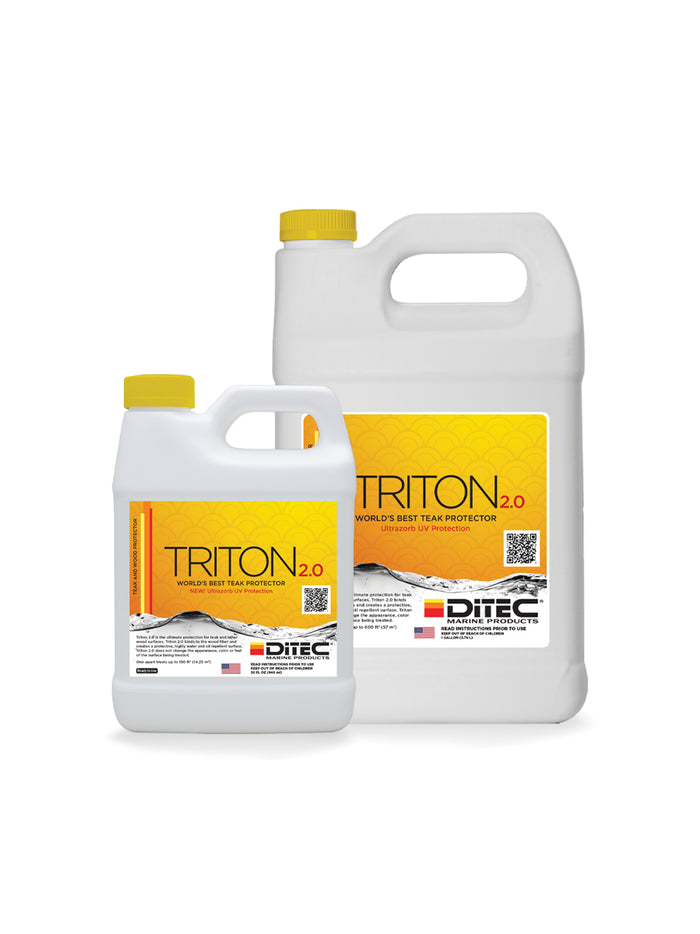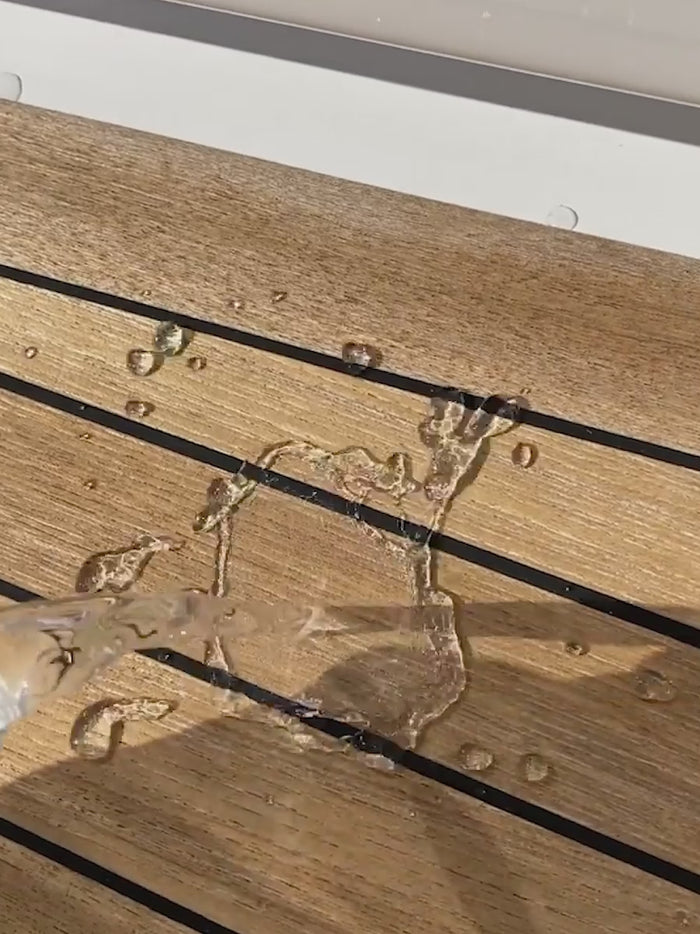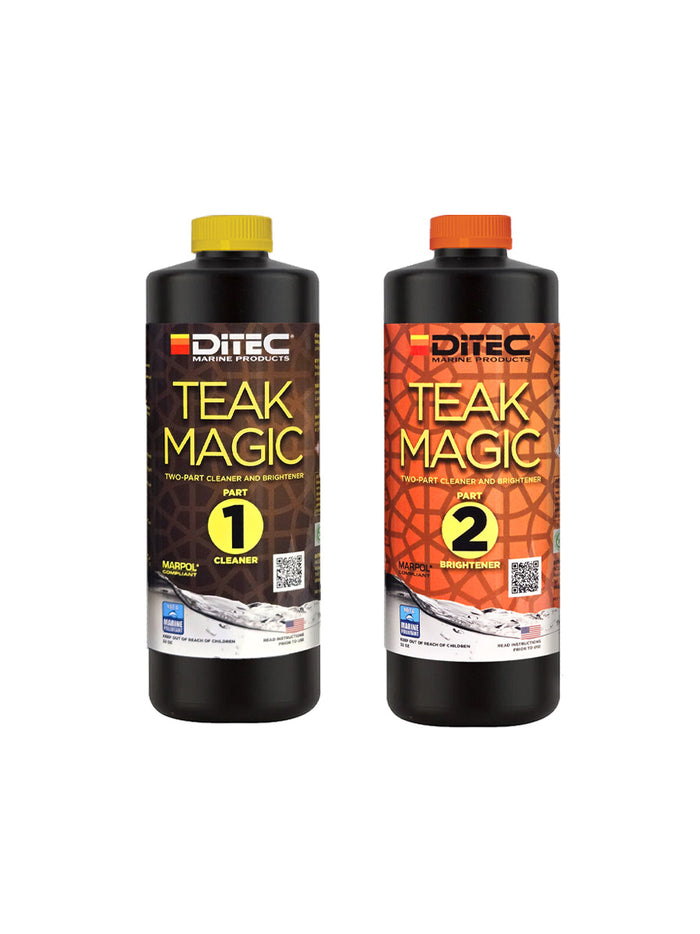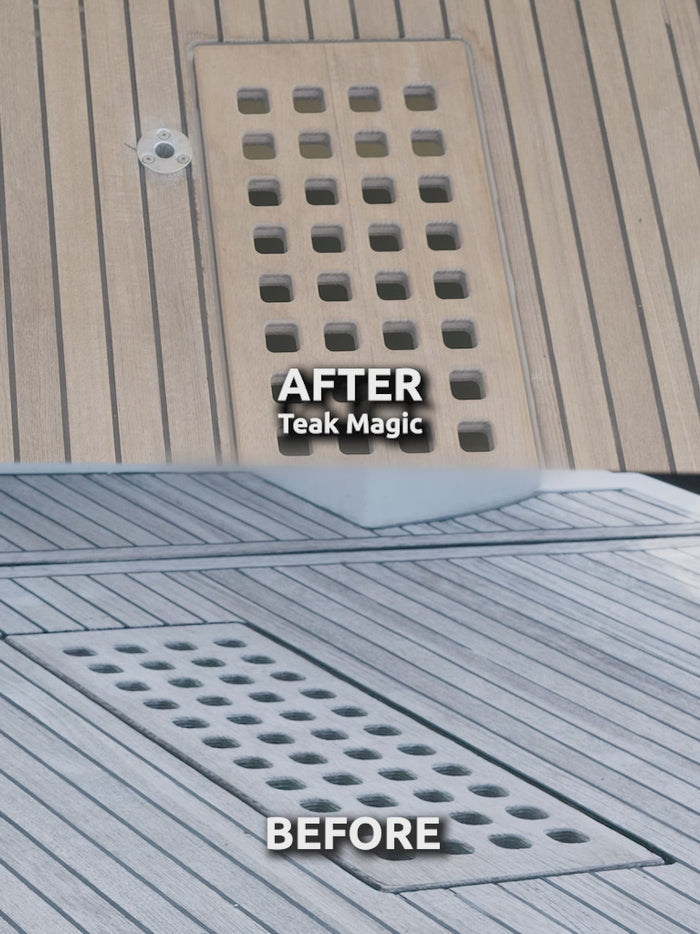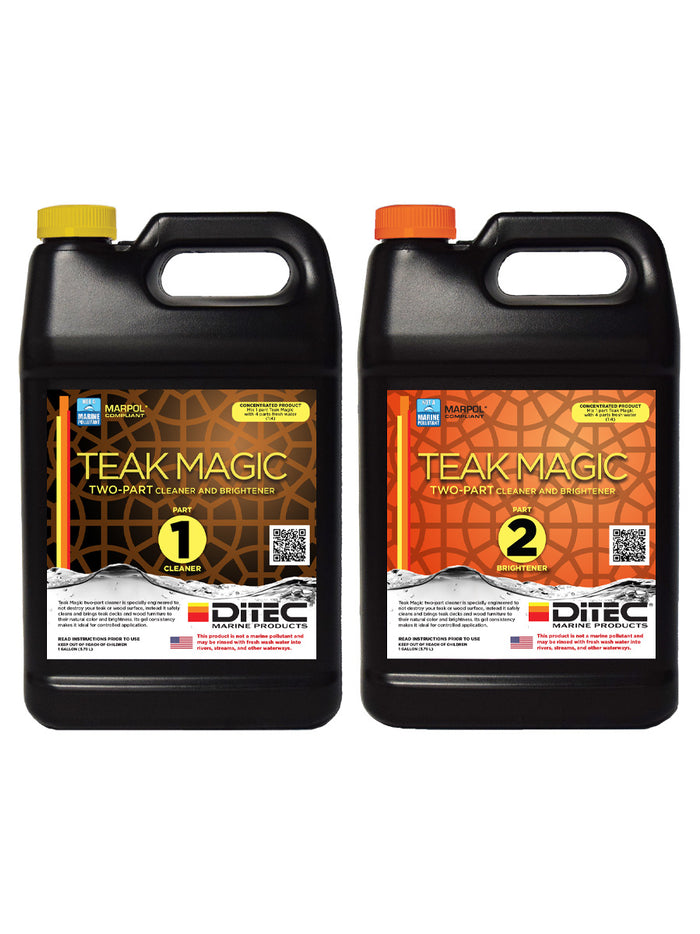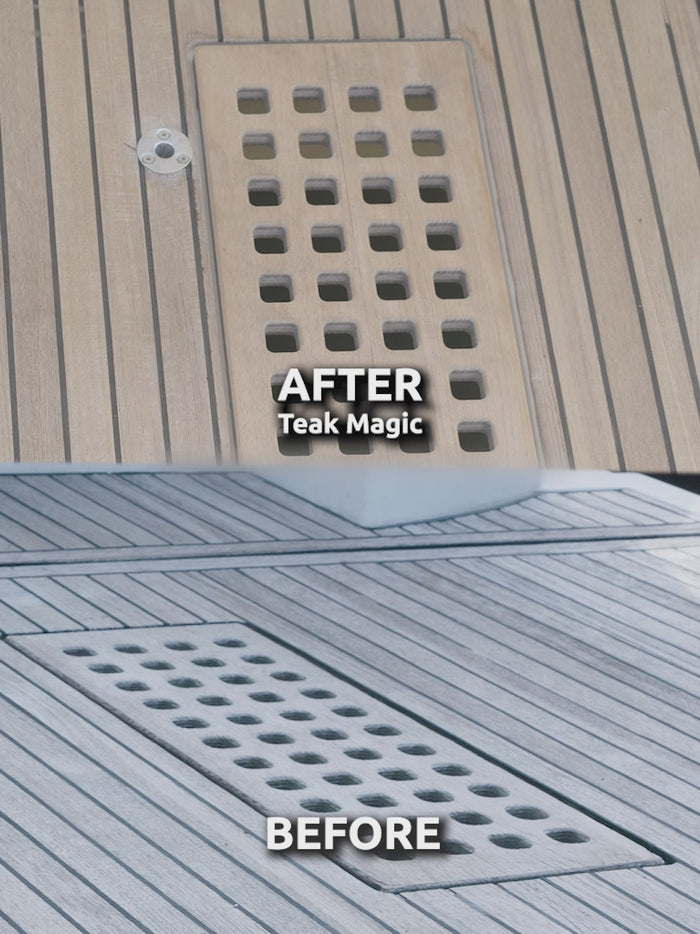If you’re a boat lover or own teak furniture, you probably want to know how to take care of this beautiful wood as effectively as possible. Due to its high oil and rubber content, teak is an incredibly durable wood. It can last for decades with very little maintenance in various climates, and it is virtually waterproof and resistant to pests and rot. But, in order to keep it looking its best and to maintain its optimal performance for everyday use, there are definite dos and don’ts when it comes to taking care of teak.
The good news is that teak doesn’t need to be rigorously cleaned very often– unless you’re constantly spilling or find yourself knee deep in fish guts on a normal basis, a regular cleaning for general upkeep is sufficient for your teak. So, what’s the bad news? Tons of products on the market promise to make easy work of teak maintenance, but many of these products could actually be harmful to your teak in the long run.
Over time, your teak’s original golden hue will naturally develop a silvery patina that some people try to avoid using teak oils. These oils often claim to “feed” the wood in a way that enhances its natural golden color; however, these oils almost never have anything to do with teak itself and often contain linseed oil, thinners, or varnishes. So, why is this bad? Here are the reasons you should avoid using teak oils on your wood and opt for a protectant, like DiTEC’s Triton 2.0, instead.
TRITON 2.0
Teak and Wood Protectant— Creates a Surface Highly Repellent to Water, Salt, Oil, UV Rays, and Dirt
Teak Oil Adds Extra Maintenance, Cost, and Can Cause Mildew
Because of its high natural oil content, teak simply does not need added oil. Applying teak oil is a process you’ll have to repeat frequently and effectively, and the costs can add up. Instead of adding another chore to your laundry list, a teak protectant like DiTEC’s Triton 2.0 only needs to be applied once every six months and repels oil, dirt, water, wine and more. Applying additional oil can also interfere with teak’s natural mildew-fighting properties and add even more upkeep and cost to your teak maintenance when you have to get rid of unexpected mold.
Teak Oil Can Weaken Teak’s Structure
When the teak oil you use dries, it can cause your wood to become brittle and shorten its lifespan dramatically. Given teak’s natural durability, you’re likely to spend more money much sooner on drastic repairs before you would ever have to otherwise. Protectants like DiTEC’s Triton 2.0 shield your teak from UV rays and grime, letting the natural abilities of your teak shine for much longer.
Teak Oil Does Not Delay the Graying Process
While teak oil might make your teak look more like its original form, the aging process of your wood does not stop when you apply oil. In fact, teak oil does not have any benefit to the natural chemistry of teak at all.
Teak Oil Attracts More Grime
The areas where you use teak oil are usually high traffic areas: boat decks and seating, teak tables and chairs. Using teak oil on these busy areas can cause your surfaces to be much stickier, attracting far more grime, dirt, and pet hair than you bargained for! In addition, oils can make surfaces more slick and cause more accidents than using a virtually unnoticeable protectant like DiTEC’s Triton 2.0.
In summary, not only do you simply not need to use oils on your teak, you probably shouldn’t in order to preserve the natural fortitude and beauty of your teak surfaces. Teak oils like West Marine's Golden Teak Oil, Blue Water's Armada Original Gloss, and Bally Block's Emmet's "Good Stuff" Wood Finish can weaken your teak, make it far more laborious to take care of, and attract more dirt than simply protecting your wood with a protectant.
The Best Alternative to Teak Oil and Sealer
DiTEC’s Triton 2.0 is a protectant that acts as a UV-ray and grime shield for your teak and other hardwood surfaces. Unlike other, shorter-lasting teak protectants like Golden Care Teak Shield or teak oils, Triton uses nano-technology to block out moisture, UV rays, and future stains so you’re not deep cleaning again in a few weeks. It expertly repels liquids from your teak and allows the natural ability of this durable wood to do what it does best. Next time you’re thinking about oiling up, consider how much time and money you could save by protecting your teak instead!



